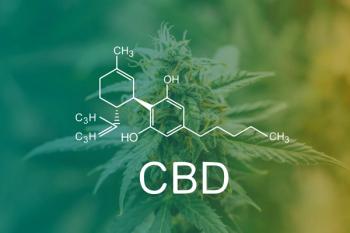
Study Finds Increased Brain Connectivity in Regular Cannabis Users
Researchers found an association between cannabis use and the ability to empathize.
In a study published earlier this month, researchers aimed to examine the influence of cannabis use on the connectivity of areas in the brain associated with empathy and that also contain many CB1 receptors (1). The study, titled “Empathy-related differences in the anterior cingulate functional connectivity of regular cannabis users when compared to controls,” was published in the Journal of Neuroscience Research on November 8, 2023 (1). Citing negative associations between cannabis and mental health, the researchers for this study stated that the results demonstrated some potential therapeutic benefits of cannabis and its positive effects on relationships (1).
Researchers studied a total of 136 participants, 85 of whom used cannabis regularly, using the Cognitive and Affective Empathy Test to analyze their ability to empathize with others (1). They also examined MRI images taken from a smaller sample, 46 regular cannabis users and 34 controls, of the original population (1). According to the study’s results, the participants who used cannabis showed greater connectivity in areas of the brain associated with empathy (1).
“The greater FC [functional connectivity] showed by the users is associated with emotional representational areas and empathy-related regions,” stated the researchers in the abstract (1). “In addition, the differences in psychometric scores suggest that users have more empathic comprehension. These findings suggest a potential association between cannabis use, a greater comprehension of the other's affective state and the functional brain organization of the users. However, further research is needed to explore such association, since many other factors may be at play.”
One of the study’s authors Sarael Solórzano, senior researcher at the Instituto de Neurobiología at Universidad Nacional Autónoma de México, explained to Forbes some of the factors to take into consideration when examining the results (2). These included the low tetrahydrocannabinol (THC) potency of the cannabis used in the study, the narrow representation of all cannabis users, and the need to still take into account results from studies that demonstrate the negative effects of cannabis use (2).
References
- Olalde‐Mathieu, V. E.; Atilano‐Barbosa, D.; Angulo‐Perkins, A.; Licea‐Haquet, G. L.; Dominguez‐Frausto, C. A.; Barrios, F. A.; Alcauter, S. Empathy‐related differences in the anterior cingulate functional connectivity of regular cannabis users when compared to controls. Journal of Neuroscience Research 2023, 102 (1) DOI: 10.1002/jnr.25252.
- Adams, B. Do cannabis users feel more empathy? A new study aims to find out
https://www.forbes.com/sites/benjaminadams/2023/11/22/do-cannabis-users-feel-more-empathy-a-new-study-aims-to-find-out/?sh=37540052243a (accessed Nov 22, 2023).
Newsletter
Unlock the latest breakthroughs in cannabis science—subscribe now to get expert insights, research, and industry updates delivered to your inbox.




